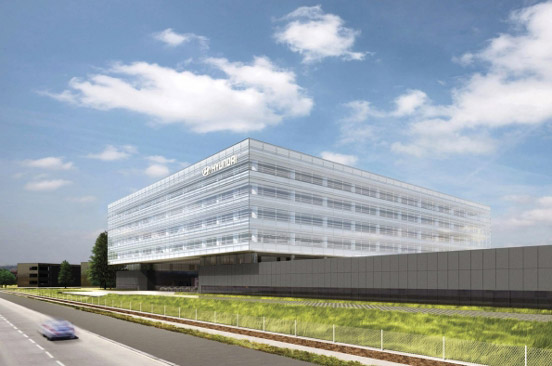New York: Hyundai Motor Group has announced a massive $21 billion investment in the United States over the next four years, marking a significant push to expand its footprint in its most critical international market. Industry experts see this as a strategic move to safeguard its competitive edge as trade policies shift under President Donald Trump’s administration.
The investment plan, unveiled by Hyundai Motor Group Executive Chair Euisun Chung at the White House alongside President Trump and Louisiana Governor Jeff Landry, signals the South Korean automaker’s commitment to deepening its U.S. operations. This marks the first major American investment announcement from a South Korean conglomerate since Trump’s return to office.
With Hyundai and its subsidiary Kia selling a combined 1.7 million vehicles in the U.S. last year—securing their spot as the fourth-largest automotive group in the country—the decision to invest heavily in local manufacturing is seen as both a business strategy and a political necessity. Trump has consistently championed domestic production and promised reciprocal tariffs on foreign auto imports, a stance that has kept global automakers on edge.
Industry analysts believe Hyundai’s move is a direct response to Trump’s protectionist trade policies. “The investment aligns with the administration’s push to revitalize American manufacturing and reduce reliance on foreign-made goods,” said an anonymous industry observer.
Trump himself praised the decision, emphasizing that “Hyundai will be producing steel in America and making its cars in America,” adding that the company’s commitment to domestic production could shield it from impending tariffs. While it remains unclear if Hyundai will receive specific exemptions, the announcement strengthens its position in a rapidly evolving trade environment.
A key component of Hyundai’s plan involves boosting production at its Hyundai Motor Group Metaplant America (HMGMA) facility in Savannah, Georgia. The company aims to increase its output from 300,000 to 500,000 vehicles per year, pushing total U.S. production beyond 1 million units annually.
“Choosing Savannah as a hub for our operations—creating over 8,500 American jobs—was a decision influenced by my meeting with President Trump in Seoul back in 2019,” Chung said.
Additionally, Hyundai Steel Co. will construct a 2.7-million-ton electric arc furnace (EAF) steel plant in Louisiana, reinforcing Hyundai’s supply chain and insulating the company from new steel tariffs.
With the Trump administration having already imposed a 25% tariff on steel imports and fresh auto tariffs set to take effect in April, Hyundai’s aggressive expansion in the U.S. could position it favorably in the shifting economic landscape.

